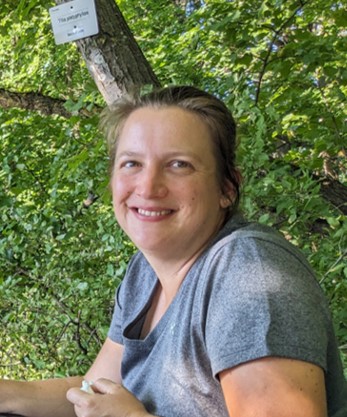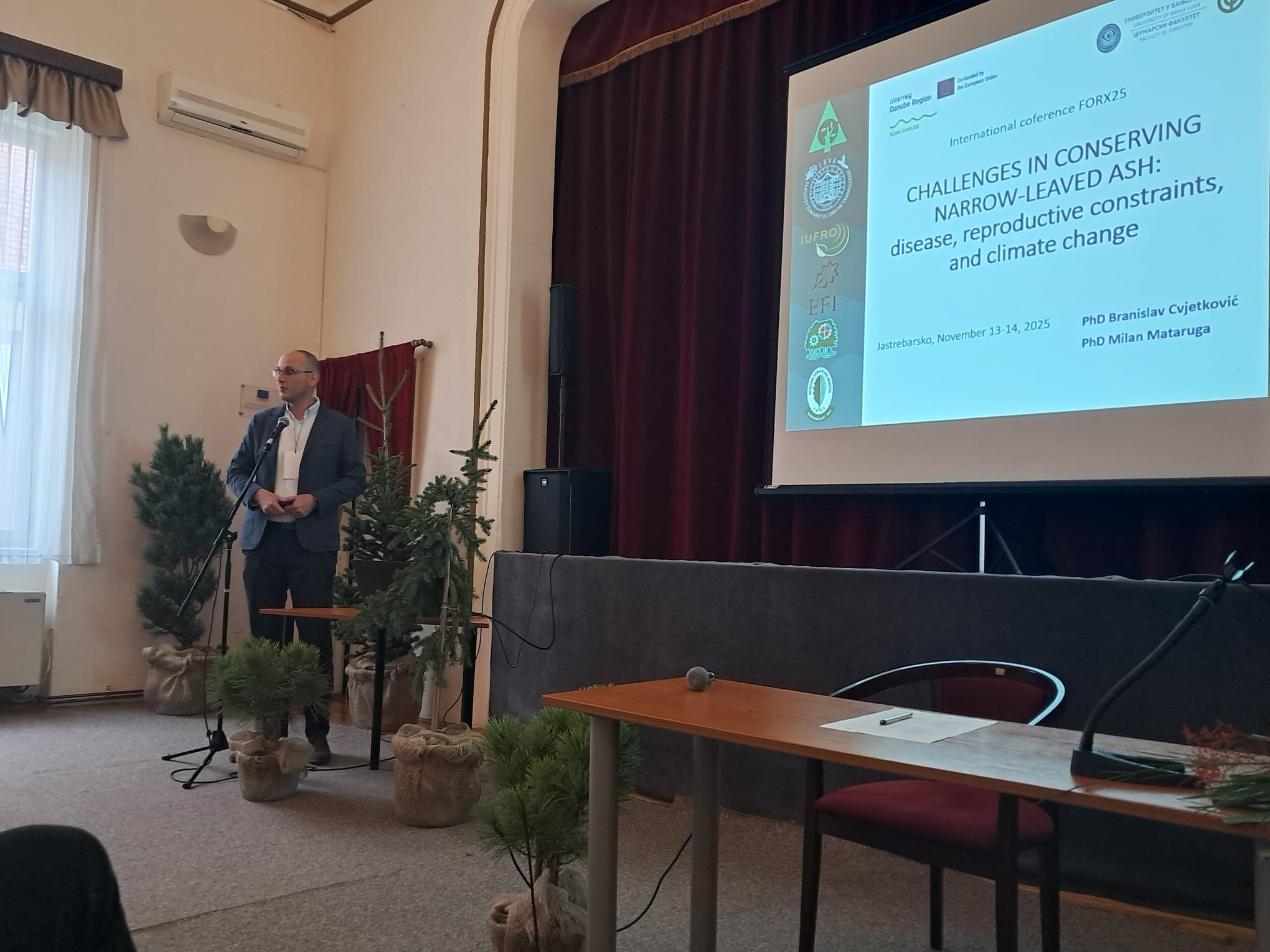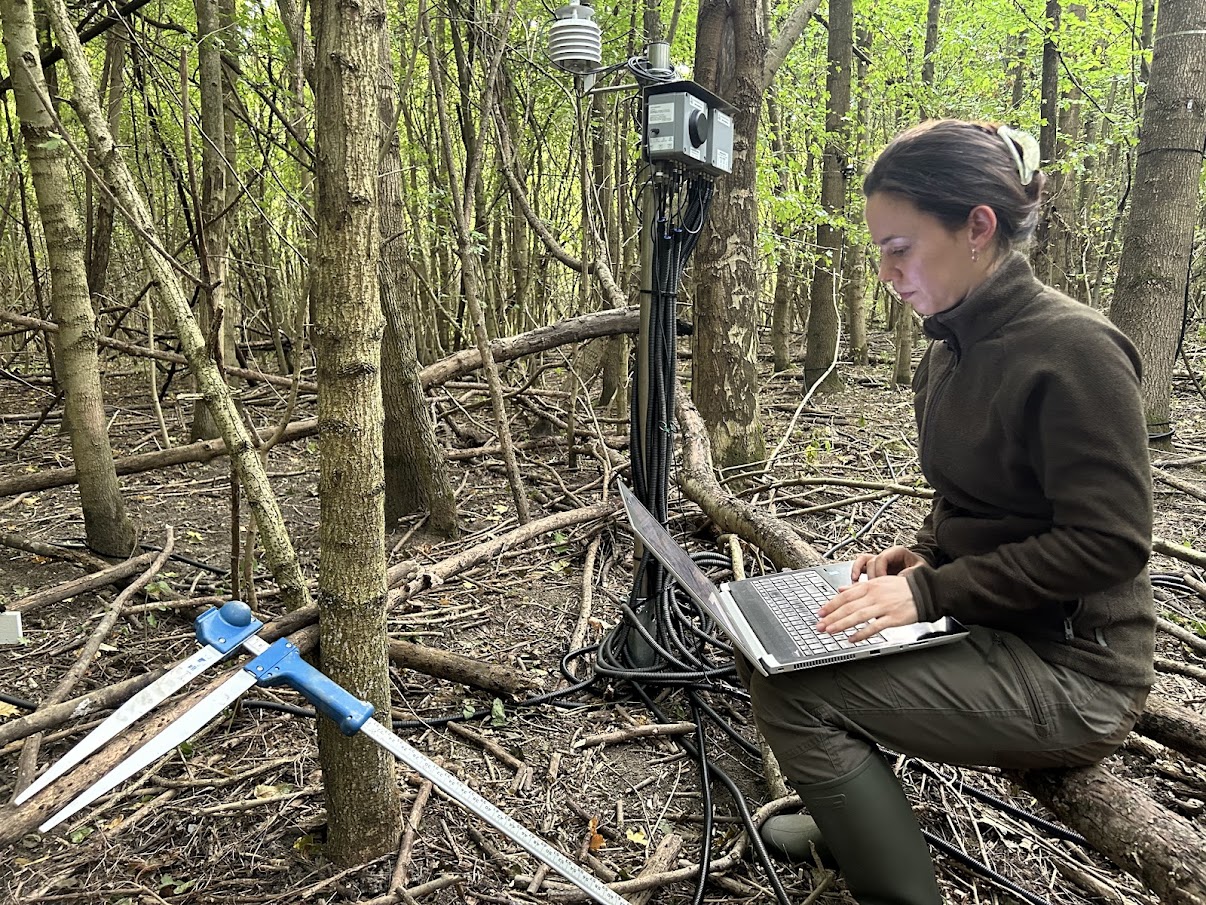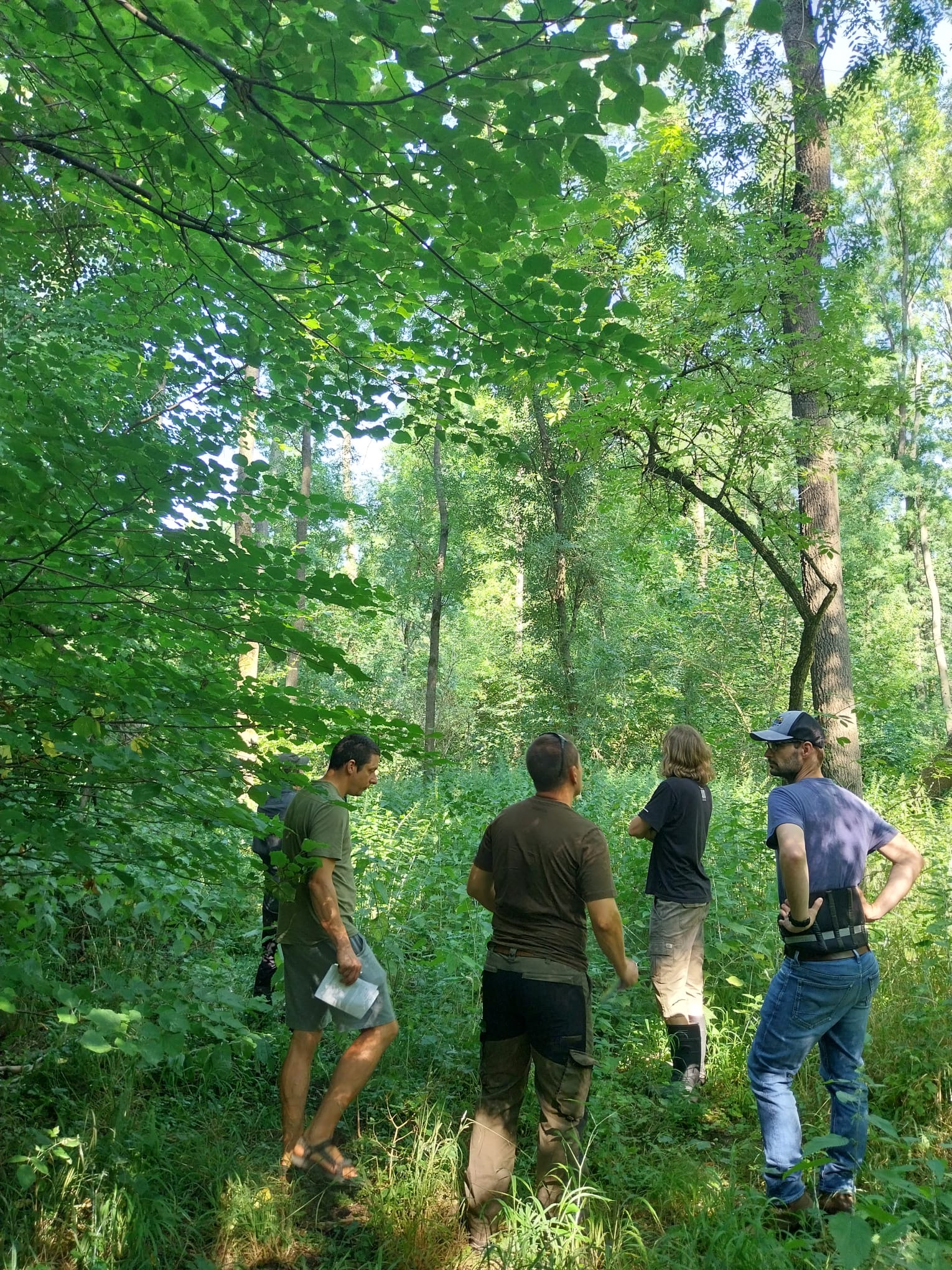SCAN - DANUBE
The SCAN DANUBE project deals with narrow-leaved ash (Fraxinus angustifolia), a stand composing tree species native to alluvial forests of Central and South Europe, where it plays a crucial role in the ecosystems of the Danube region, offering ecological, economic, and social benefits.
Photo by Danko Diminić
The narrow-leaved ash is endangered by unsustainable human activities and climate change issues, such as extreme temperatures, shifts in precipitation patterns and fluctuating water tables throughout the year, by invasive pathogens (e.g. Hymenoscyphus fraxineus) and by a frequently observed loss of natural reproduction. Considering the lack of guidance on how to manage these forests, a significant decrease in abundance of narrow-leaved ash can be expected in near future with consequent economic losses, destabilization of stands and loss of alluvial forests biodiversity. Having this in mind, a coordinated international approach is needed to enhance the resilience of narrow-leaved ash forest resources and ecosystem services in the Danube region, with a strong emphasis on sustainable forest management and conservation of this species genetic resources.
Therefore, overall objective of SCAN-DANUBE is to counteract narrow-leaved ash forests decline in the Danube region by providing novel strategies and guidelines for forest management and conservation of this tree species in both commercially used and protected alluvial forests of the Danube area.
The SCAN-DANUBE consortium consists of 6 project partners and 9 associated partners from Austria, Bosnia and Herzegovina, Croatia, Czech Republic, Serbia and Slovenia, geographically covering the largest part of the natural distribution of narrow-leaved ash in the Danube region, and is led by the Mendel University in Brno.
Photo by Branislav Cvjetković
SCAN-DANUBE includes 3 thematic special objectives (SOs):
1) interpreting and advancing the knowledge regarding the narrow-leaved ash past and the present status in the Danube region
2) enhancing management and conservation of this species across the thematic region
3) implementing novel monitoring system and breeding strategies to enhance the vitality and preservation of narrow-leaved ash in the partner’s countries.
Photo by Alena Šamonilová
To address these specific objectives, the SCAN-DANUBE focuses on the following goals
i) to overview the current and past status of narrow-leaved ash in the partner countries, as well as to contribute to the better understanding of drivers leading to the decline of narrow-leaved ash forests across the Danube region and their dependence on specific climate and habitat conditions and management history,
ii) to develop the strategy/Action plans and guidelines for sustainable management and conservation of narrow-leaved ash forest resources, including improvement of natural regeneration by enhancing seed production and addressing factors affecting fruiting patterns and germination,
iii) to establish a monitoring network, based on novel Internet of Things (IoT) technology, able to automatically generate data of trees vitality in a near real-time, iv) to produce the guideline providing best practices for plant selection, propagation, and plantation establishment,
iv) to increase and share the science-based knowledge among state authorities, nature conservation officers, national park managers, forest companies and private forest owners, in order to increase decision security while managing and protecting narrow-leaved ash forests across the Danube region.
News & Events
Read the most recent updates and explore the upcoming events.
Project overview
Need any help? Contact us!

Alena Šamonilová
Project manager, MENDELU

Marie Hábová
Financial manager, MENDELU

Jindřiška Hrubá
Communication manager, MENDELU
Danko Diminić
Project manager, UNIZG FFWT

Sasa Orlović
Project manager, ILFE

Matjaž Čater
Project manager, SFI

Branislav Cvjetković
Project manager, UNIBL

Katharina Schwanda
Project manager, BFW



